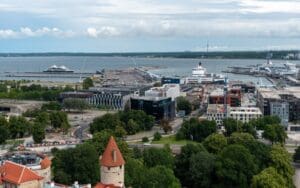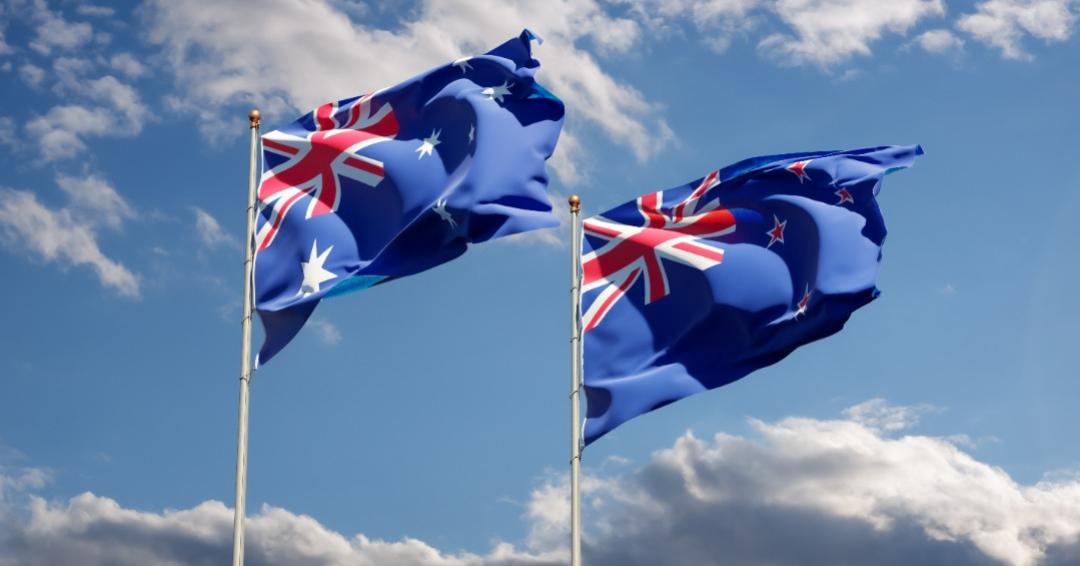Every year on April 25, Anzac Day is observed in Australia and New Zealand. It originally commemorated Australians and New Zealanders who served and died during the First World War. It has since become a day of remembrance for all Australians and New Zealanders who have served and died in military conflicts.
One can understand the desire to mourn the dead. However, the loyalist nature of the commemorations—military and government figures are prominent, and there is social pressure to wear a red poppy—symbolizes a lack of critical thinking about the First World War. Many, if not most, Australians and New Zealanders treat the war as a tragedy that was largely unforeseen and ultimately futile. A significant number still affirm the pro-Allied view that German imperialism was to blame and that the British Empire—of which Australia and New Zealand were an important part—was fighting for world peace and liberty.
There is almost no support in these countries for revisionist scholarship. Revisionism contends that the Allies helped precipitate the war and that their militaristic and imperialistic tendencies were equal to, or more decisive than, Germany’s. Revisionism blasts apart the myth that Allied nations were altruistic vehicles of justice and liberty whose interventions have safeguarded democracy through the ages. Above all, the myth challenges Anglophone self-righteousness, exemplified by figures like Woodrow Wilson and Winston S. Churchill, which has helped justify military interventions up to the present day.
The weakness of revisionist scholarship in Australia and New Zealand means that many people in these countries still affirm the myth of Anglophone righteousness. For example, New Zealand’s only revisionist text of any note, the leftist Stevan Eldred-Grigg’s The Great Wrong War, has been heavily criticized by academics with close establishment ties.
This lack of attention to revisionism is unfortunate since Australia and New Zealand contributed to the outbreak and escalation of the war—even more than Eldred-Grigg suggests. Isolated from Britain, Australia and New Zealand had long feared invasion by rival powers. To offset the possibility, they advocated seizing wide swathes of the Pacific as buffer zones; the most ambitious wanted to transform the ocean into a British lake. Before the war, New Zealand had already begun executing this plan, successfully annexing Niue and the Cook Islands. This kind of behavior alarmed other powers with vested interests in the region, notably Germany, whose colonies of New Guinea and Samoa were among those coveted by the Anglophone countries.
At first, Australia and New Zealand had relied on the Royal Navy for protection, which was funded by the British taxpayer. However, when rival nations began to challenge Britain’s naval dominance over the world’s oceans—not least to protect their commerce from British interference—Australia and New Zealand leaped into action. Between 1902 and 1914, the Australian defense budget increased by a factor of six, accounting for over 30 percent of government spending by 1914. Between 1902 and 1912, New Zealand’s defense budget doubled. Both countries instituted compulsory military service to augment their ground forces. They also upgraded their naval assets: New Zealand funded a new battlecruiser for the Royal Navy, HMS New Zealand, to help with Pacific defense, and Australia established its own navy, whose leading warship was the battlecruiser HMAS Australia.
This surge of militarism contributed to prewar tensions. Isolated and underfunded, Germany’s Pacific colonies were virtually devoid of army personnel. There was a cruiser squadron based in Tsingtao, China, but its vessels were easily outclassed by British and Australian naval forces in the Asia-Pacific region. This situation distressed Germany’s colonial leaders because it put them at the mercy of belligerent British forces. For example, when the Second Moroccan Crisis of 1911 sparked saber rattling between Britain and Germany, HMS Challenger of the Australia Station slunk into German Samoa’s main harbor in a covert night operation. Recognizing that the ship would attack if war were declared, many Germans fled into the hinterland for protection—and all this before a formal declaration of war.
Upon Britain’s entry into the First World War in 1914, Australia and New Zealand lost little time realizing their imperialist ambitions. New Zealand swiftly dispatched approximately fourteen hundred men to capture Samoa. Given that it was virtually undefended, the German authorities surrendered without a fight. Australia launched a similar expedition against New Guinea. Here, a handful of German and Melanesian soldiers resisted. However, they could not hold back the Australian juggernaut—approximately two thousand men and the Royal Australian Navy’s most powerful warships—for very long.
The Australians and New Zealanders subjected their newly won territories to a potent mixture of racism, economic exploitation, and martial law. Especially in the months after the capture of New Guinea, drunken Australian soldiers looted indiscriminately and assaulted Melanesian and Chinese residents. New Zealand instituted martial law in Samoa, interning many Germans in appalling conditions and literally beating the large Chinese labor population into submission. The colony was stripped of its wealth; deported Chinese laborers even had their earnings confiscated. These actions scandalized the Germans who learned about them. For example, it has been suggested that a desire to revenge the brutalization of Samoa partly motivated Admiral Maximilian Graf von Spee’s audacious attack on the Falkland Islands in December 1914. Although the Germans ultimately lost—von Spee did not expect to find capital ships in the harbor—the raid put an entire British squadron at risk. The attack might even have succeeded if it had been pressed home, which would have been catastrophic for the British war effort.
Another way that Australians and New Zealanders escalated the war was by the participation of HMAS Australia and HMS New Zealand in the starvation blockade of Germany and Austria-Hungary. One of the greatest war crimes of the twentieth century, this blockade cost the lives of nearly one million German and Austro-Hungarian civilians. As battlecruisers, the Australia and New Zealand were essential for preventing the German High Seas fleet from breaking this blockade.
With all this in mind, the need for a critical attitude toward the war in Australia and New Zealand becomes evident. Their imperialistic and militaristic tendencies fueled prewar tensions and intensified the conflict. To point this out is to highlight the strength of the revisionist perspective and, ultimately, to expose the foul underbelly of the British Empire.























